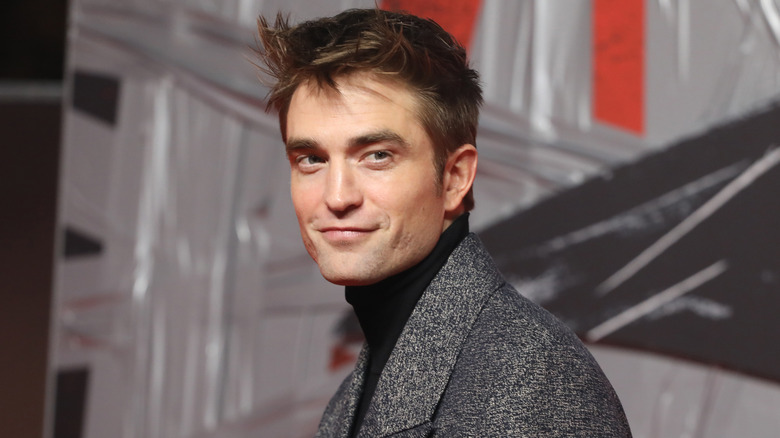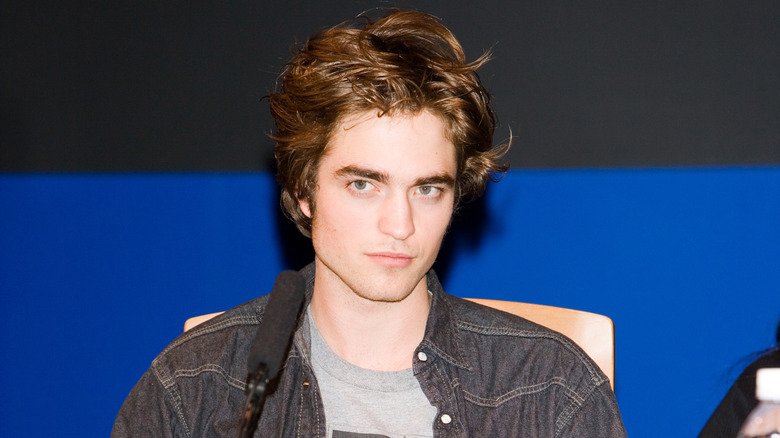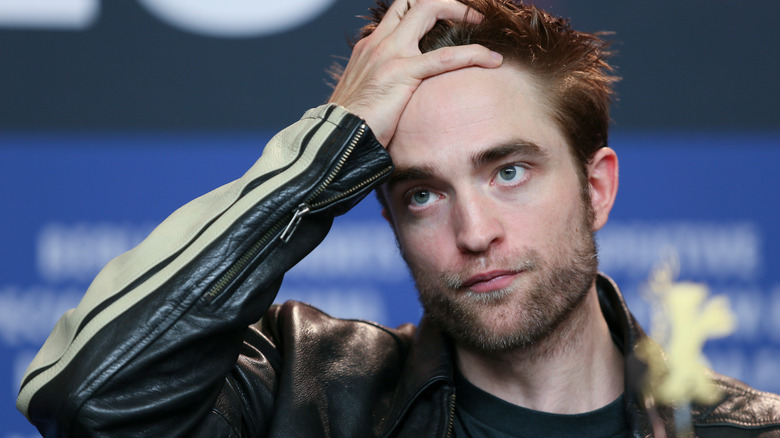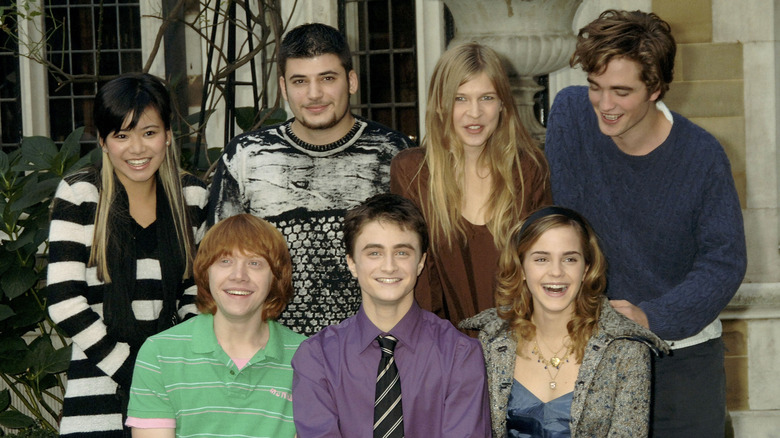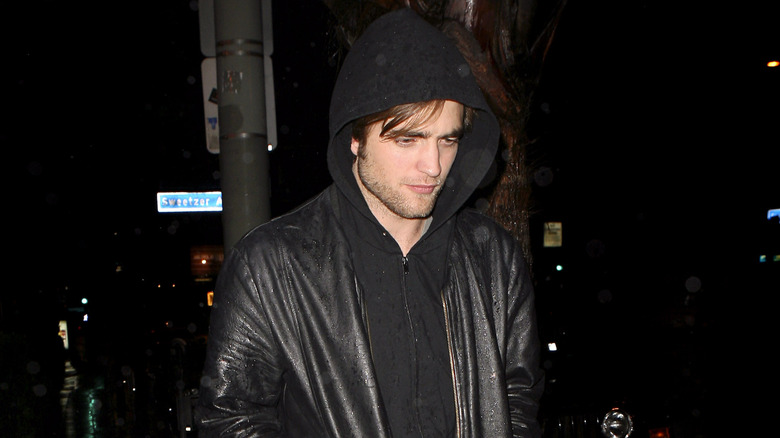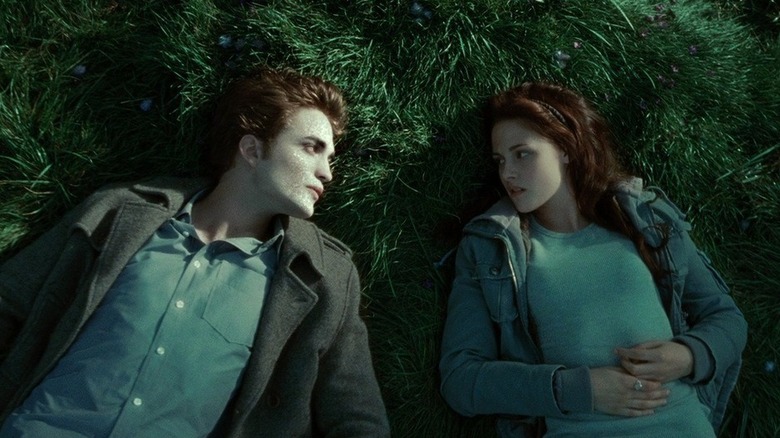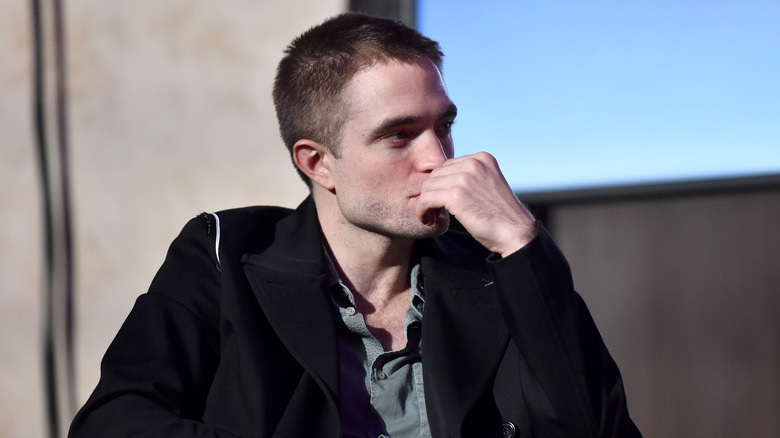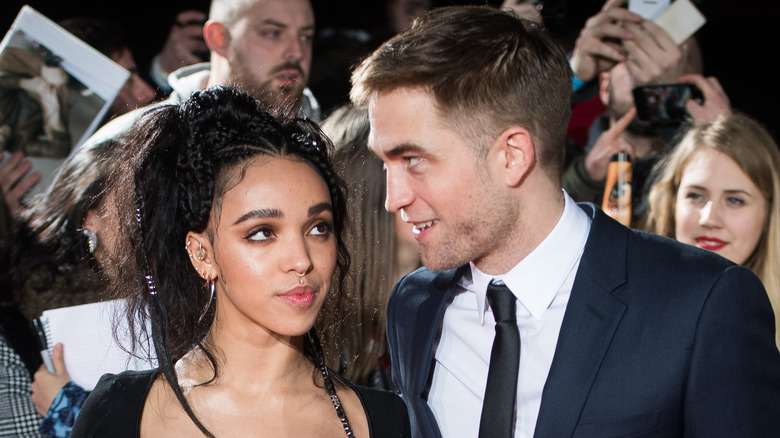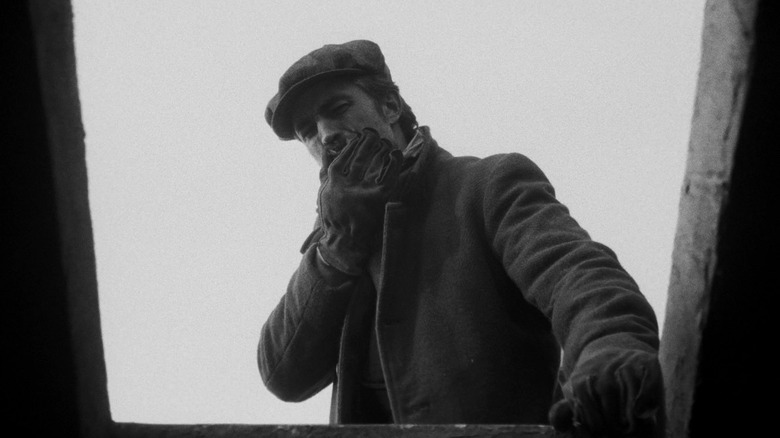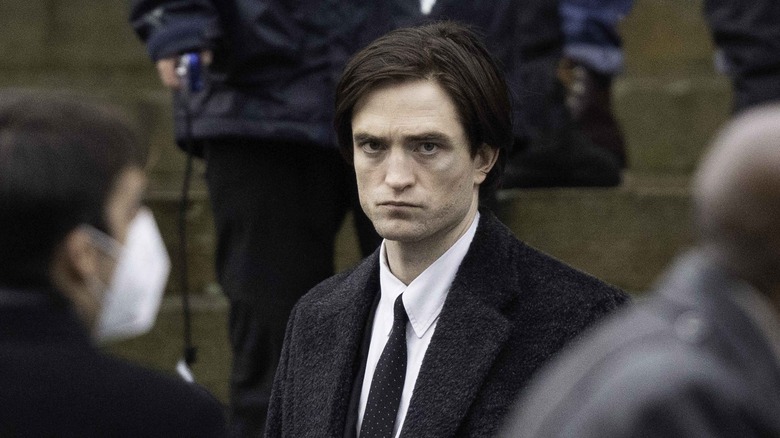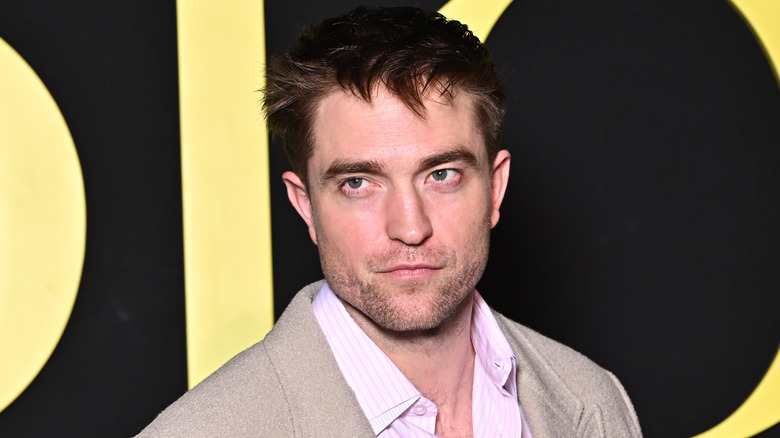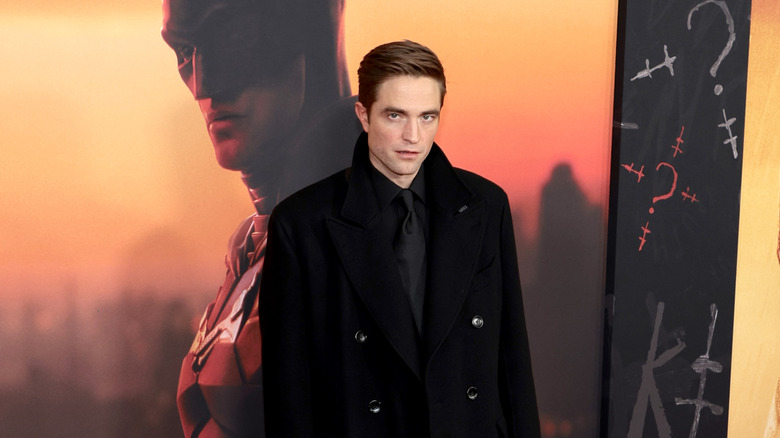Robert Pattinson's Tragic True Life Story
One debate that remains prevalent in Hollywood is how to cultivate new movie stars. Questions arise about the impact of social media, the types of films that create such stars, and whether Hollywood can thrive without them. These discussions are crucial when considering actors and how the profession will adapt to the evolving landscape of audio-visual entertainment. One thing is certain: When the dust settles and people assess which actor navigated this era successfully, Robert Pattinson will be one of the names that stands out.
Pattinson has embraced diverse roles, from auteur-driven arthouse films to summer blockbusters and mid-budget critical darlings, and it appears he's just beginning his journey. However, his life has not been without its challenges. Like many, his journey has been marked by tragedies and obstacles that have significantly influenced him.
While most fans tend to view actors' lives through a positive lens, delving deeper into their personal stories reveals that they, too, have faced both minor and major struggles. For some fans, this perspective offers a more well-rounded understanding of these individuals. With this in mind, let's explore some of the significant, tragic events that have shaped Robert Pattinson's life.
Robert Pattinson had early trouble in school
Robert Pattinson's demeanor during late-night interviews is consistently peculiar. He maintains a lighthearted approach and never takes himself too seriously. Yet, there's an undeniably dark edge to the stories he finds amusing. Pattinson's early years were spent in Barnes, an idyllic upper-middle-class neighborhood in southwest London. His mother worked as a scout for a modeling agency, while his father was a vintage car salesman. With admission to Tower House School, which also produced stars like Tom Hardy, it seemed that Pattinson's journey to stardom would be smooth.
However, when Pattinson was just 12 years old, he had different plans, making his life a bit more complicated. During an interview with Howard Stern, Pattinson disclosed how, at a young age, he used to pilfer adult magazines from a store and then resell them at school. His illicit business thrived, but he became increasingly audacious and eventually progressed to stealing entire rows of adult magazines.
His activities came to a halt when he was caught by a store employee, who reported the situation to his school. Soon after, Pattinson's school also learned of his selling of the magazines to fellow students, leading to his prompt expulsion. He might be able to find humor in the story nowadays, but that level of self-sabotage is one that an individual tends to carry with them.
He was cut from his first big movie role
As Robert Pattinson entered his teenage years, he veered toward his more artistic side, leaving his bad-boy school persona behind. He delved into print modeling and explored music. His foray into acting was spurred by a crush he had on a girl who was involved in a local play.
Initially, Pattinson didn't jump straight into acting. He spent two years working as a stagehand. It wasn't until his theater decided to stage an adaptation of the musical "Guys and Dolls" that he felt the urge to audition. From that point on, his acting career was set in motion. However, this early phase proved to be more challenging than expected. Pattinson secured two major roles in quick succession — a significant achievement for an up-and-coming actor. The first was in a television movie titled "Ring of the Nibelungs," followed by a big break in director Mira Nair's period piece "Vanity Fair."
Little did Pattinson know that his pivotal role as Reese Witherspoon's son in "Vanity Fair" would be completely cut from the final movie. Nevertheless, time has healed that embarrassing disappointment, and Pattinson now looks back on the experience with a somewhat positive outlook. He shared with W Magazine, "The casting director, Mary Selway, who sadly passed away, she felt so guilty that no one had informed me that she gave me a first run at the part in 'Harry Potter.' So I was quite glad I got cut in the end."
Pattinson sacrificed university for Harry Potter
Robert Pattinson's career in acting was far from secure before he became the star he is today. Prior to his breakthrough role, he relied on small parts and the goodwill of individuals who believed in his potential.
After completing "Vanity Fair," Pattinson fortunately aced his audition and landed the role of Cedric Diggory in "Harry Potter and the Goblet of Fire." This role was relatively secure, as it couldn't be cut from the movie. However, it didn't guarantee him another one afterward. As he had always done, Pattinson kept his options open and had planned to enroll in university after finishing the "Harry Potter" shoot. Unfortunately, the film's shooting schedule extended several months beyond its original timeline, compelling him to forgo his university plans.
This was a substantial risk at that point in his life. Pattinson later shared in an interview with DP/30 that throughout his career, there have frequently been waiting periods that could stretch out for months before landing his next role. During these times, he's had to grapple with the anxiety of unemployment and wonder if each job might be his last — a feeling that must have been particularly daunting so early in his career.
Robert Pattinson has endured intense paparazzi harassment
"Twilight" served as Robert Pattinson's breakthrough, shaping a significant part of his early career. When he secured the role, it was in a mid-budget teen romance film with relatively unknown leads. To his credit, Pattinson took risks with his performance, opting to portray his character as more brooding than the typical upbeat teenage romance characters of that era.
The movie struck a chord with audiences, amassing over $400 million worldwide and propelling Pattinson to overnight stardom. Tabloids and the media became overly intrigued by his life, and he even got a spot on People Magazine's 2008 list of the Sexiest Men Alive. Consequently, the paparazzi saw capturing every aspect of Pattinson's life as a lucrative endeavor and began relentlessly stalking him.
In various interviews, Pattinson has conveyed his preference for solitude and privacy, characterizing himself as a relatively reserved individual. Therefore, the initial overwhelming paparazzi interest took a toll on him. During a 2014 interview with The Hollywood Reporter, he candidly expressed his exasperation but also said that he's learned to live with the consequences of fame. Reflecting on a particularly intense paparazzi chase, he stated, "It was like eight cars following me. And this went on for 10 hours, this thing. I literally didn't know what to do. [But] you figure out ways to deal with it. It's been such a long time now, it just becomes what your life is. I can't even really remember what my life was like before."
He had public relationship challenges
"Twilight" marked a turning point in Robert Pattinson's life, catapulting him into the spotlight to the extent that even future American President Donald Trump was speculating about whether he should get back together with his co-star and on-and-off girlfriend Kristen Stewart. Stewart had already secured her role in the "Twilight" saga before Pattinson joined the cast. However, their undeniable chemistry during a screen test for the movie left the director concerned about the potential off-screen drama that might affect the film.
During the Stewart-Pattinson romance, fan adulation reached its peak. The frenzy surrounding the couple was inescapable, and Barbie dolls were even modeled after their Edward and Bella characters. Both stars made a concerted effort to shield their relationship details from the media. Stewart later revealed that this was to avoid attracting even more attention on top of the considerable fame they already experienced.
The relationship unraveled after paparazzi captured Stewart kissing her director for "Snow White and the Huntsman," Rupert Sanders. The public fallout preceded their official breakup. Pattinson decided to sell the house he had reportedly bought for the two of them and adopted a considerably more low-key lifestyle away from all the public scrutiny. This experience undoubtedly made him reconsider just how much he could share about his relationships with the public.
Robert Pattinson has opened up about his mental health struggles
Robert Pattinson experienced a lot of depression during his early 20s. During this time, he grappled with a sense of overexposure, perpetually making headlines in the tabloids while never really being happy with the kinds of roles he was frequently getting. The relentless pursuit of paparazzi, who followed him everywhere and even put his family under a microscope, restricted his freedom to go to the places he desired.
In a candid interview with The Telegraph in 2017, Pattinson described how fame profoundly altered him. He expressed the toll of constant scrutiny and the sensation that his life had been wrested from him, leaving him with a sense of anxiety. This anxiety often led to indecision and a lack of activity. When asked about how he manages these challenges, he revealed that he finds solace in his craft. Through acting, he can unleash his wild side and explore his creativity.
Moreover, he acknowledged seeking the guidance of a therapist to help navigate these turbulent waters. He highlighted that there's a certain stigma associated with seeking therapy, even from his own parents. "You're just trying to figure out how you feel about something," Pattinson said. "I've got a lot out of it."
He's experienced extreme harassment from his own fans
Robert Pattinson has built a dedicated fanbase since his mainstream breakthrough. He's also made light of fans who create fake stories to gain his attention. Unfortunately, some fans take things to extremes, even thinking they should have a say in his personal life and his choice of romantic partners.
In an interview with Howard Stern, Pattinson referred to these overly dedicated fans as "professional trolls." He highlighted the disturbing way they treated his then-girlfriend, popular British musician FKA Twigs. These so-called fans used racial slurs and expressed unwarranted opinions about her, claiming she didn't deserve Pattinson. He aptly compared dealing with these people to having a locked room in your house where you can always hear someone saying terrible things about you when you press your ear to the wall.
The relationship between Pattinson and FKA Twigs eventually ended after a brief engagement. The ordeal deeply affected FKA Twigs' mental health, especially when people began making deplorable racist posts about her online. However, after the situation subsided, she found her voice and shared her experience with Harper's Bazaar, stating, "I now love how I look and I'm very confident, and I feel really good, but it was deeply unfair at the time that I was made to feel so self-conscious and so ugly."
He started going to extreme lengths to commit to his roles
By 2019, Robert Pattinson had finally adapted to fame. He'd discovered strategies to navigate the rarely discussed downsides of celebrity, kept his romantic life out of the tabloids, and was actively pursuing challenging roles, fulfilling his early career aspiration of pushing boundaries. And push boundaries he did.
In Robert Eggers' "The Lighthouse," Pattinson gave himself completely to the character. The film revolves around a lighthouse keeper and an ex-sailor, portrayed by Willem Dafoe, who gradually descend into delirium while tending to the titular lighthouse, finding each other's company increasingly unbearable. The film's material is notably dark, and Pattinson chose to incorporate elements of method acting, including making himself vomit, wetting his pants, and placing rocks in his shoes to mimic a limp, among other things.
These tactics didn't always sit well with his co-star. Speaking with Vanity Fair, Pattinson described filming one scene where he was noticeably close to vomiting while lying close to Dafoe. "I felt like we're completely lost in the scene and I'm sitting there trying to make myself gag and Robert [Eggers] told me off because Willem's looking at him going: 'If he throws up on me, I'm leaving the set,'" Pattinson said. "I had absolutely no idea this whole drama was unfolding." Pattinson himself acknowledged in a Variety interview with Jennifer Lopez that method actors often seem more inclined to embrace the negative aspects of their characters than the positive ones.
Robert Pattinson has dealt with body image issues
In addition to his acting career, Robert Pattinson has maintained a steady presence as a model. Remarkably, his modeling career began well before his acting endeavors, with his appearances in fashion magazines dating back to the age of 12. Over time, he's become a brand ambassador for Dior, among other notable achievements in the modeling industry. However, the work hasn't always been simple for him.
Pattinson's relationship with his own body is something that he's often struggled with, and he's been vocal about those struggles on numerous occasions. In a 2013 interview with Australia's Sunday Style magazine (via International Business Times), he provided insight into the depth of his body dysmorphic disorder (BDD), saying, "I don't have a sixpack and I hate going to the gym. I've been like that my whole life. I never want to take my shirt off."
Pattinson has consistently maintained a candid approach to discussing his life. However, this transparency had unintended consequences when he was cast as Batman. During an interview with GQ, he humorously stated that he had little interest in working out for his role as the caped crusader. This casual comment led to an immediate backlash from some fans, which could be particularly taxing for an individual who already grapples with body dysmorphia.
Pattinson has had to deal with stalkers
Celebrity stalkers are unfortunately not an uncommon occurrence in Hollywood, and their actions can often take a harrowing turn, with incidents ranging from trespassing to following stars at their workplaces. However, Robert Pattinson managed to find a humorous and unconventional way to deal with one of his stalkers.
While preparing for his role in 2008's "Little Ashes," Pattinson spent a significant amount of time in Barcelona getting ready for the part. According to him, there was a persistent stalker who would stand outside his house during his stay in Spain. One day, perhaps out of sheer boredom, Pattinson decided to invite her out for dinner.
During their dinner, Pattinson was such a bummer that the stalker ultimately stopped coming to his house. "I just complained about everything in my life and she never came back," he told Crème Magazine (via Today). "People get bored of me in, like, two minutes." Pattinson's distinctively British self-deprecating humor — a part of his charm — appears to be a handy tool for dissuading overenthusiastic stalkers.
Robert Pattinson's Batman woes
Casting decisions for the role of Batman have consistently stirred negative reactions from fans, regardless of the actor chosen. Robert Pattinson's casting was no exception, but by hat point in his career, he had developed a thick skin after enduring various trials with tabloids, fans, and life at large.
Pattinson admitted that he had anticipated a more negative backlash than what he received. He shared with MTV News that he faced a considerably worse reaction after being announced as the lead in "Twilight." Some Batman fans made vampire jokes and criticized his physique, but Pattinson chose to ignore the negativity and focused on delivering a great performance — one that ultimately resonated with both critics and fans.
For what it's worth, his director, Matt Reeves, always considered Pattinson his top choice and backed him when some fans suggested he wouldn't do a good job. Reeves was not disappointed with his choice, as the movie received high praise. In a time when superhero movie fatigue is a major talking point, "The Batman – Part II" has garnered widespread excitement from fans. Pattinson's journey reflects that — even though his life may not seem perfect from the outside — learning from mistakes and persevering through tough moments can lead to positive outcomes.
